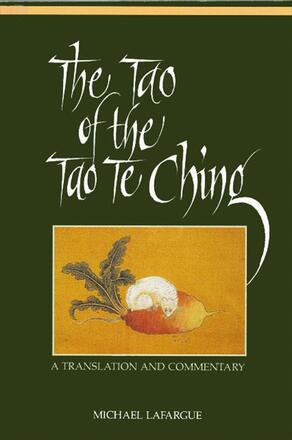
The Tao of the Tao Te Ching
A Translation and Commentary
Alternative formats available from:
Description
In this new translation and commentary, LaFargue interprets the concept of "Tao" in the Tao Te Ching as a spiritual state of mind cultivated in a particular school in ancient China‚ a state of mind which also expressed itself in a simple but satisfying life-style, and in a low-key but effective style of political leadership. The interpretation offered here is not only historically accurate, but also conveys the spiritual depth of the Tao Te Ching and its contemporary relevance. The translation is made transparent by a design that presents all of the commentary on the page facing the relevant text.
Reviews
"This translation and commentary takes a novel, even controversial approach to the Tao Te Ching, presenting the reader with a full-blown culturological understanding of this core Taoist classic. In its resolute attention to the detail of historical context, it is engaging, plausible, and for those close to the text, importantly revealing. LaFargue, taking full advantage of recent archaeological finds to inform his reading, is very contemporary. Here at last we have a translation which combines philological responsibility with the imagination necessary to unfold this powerful text. " — Roger T. Ames, University of Hawaii
"I want to urge straight away that this is one of the very best books I have ever read on Chinese philosophy and culture. LaFargue's book is the work of a refined, well-informed, sensible, straightforward, honest, candidly self-confident (yet somehow unassuming), imaginatively independent and, yes, wise individual who—largely because these gifts are exploited by an extremely well-trained mind—manages to say persistently fresh and evocative things about a much abused text and the vision it informs.
"More than any other classical Chinese work, perhaps, the Tao Te Ching has been ripped from its historical, culture and concretely experiential context and employed (like a set of transcultural Rorschach images) to tickle the meditative fancies of Mystical Everyman. LaFargue's worry about the origin and evolution of the text, its intended audience and the 'purpose' of its aphorisms allows him to ask relevant hermeneutical questions the response to which opens the text in a new way. In place of near-sighted readings of the Tao Te Ching which find it to be simply another comforting example of philosophia perennis, LaFargue's method is to dispense with the corrective lenses of philosophical semantics and to bring the text into focus by holding it at arms' length. By thus distancing the text from its contemporary readers, LaFargue, paradoxically, makes possible a much more intimate relationship to the Tao Te Ching than has heretofore been possible to Western readers. " — David L. Hall, The University of Texas-El Paso